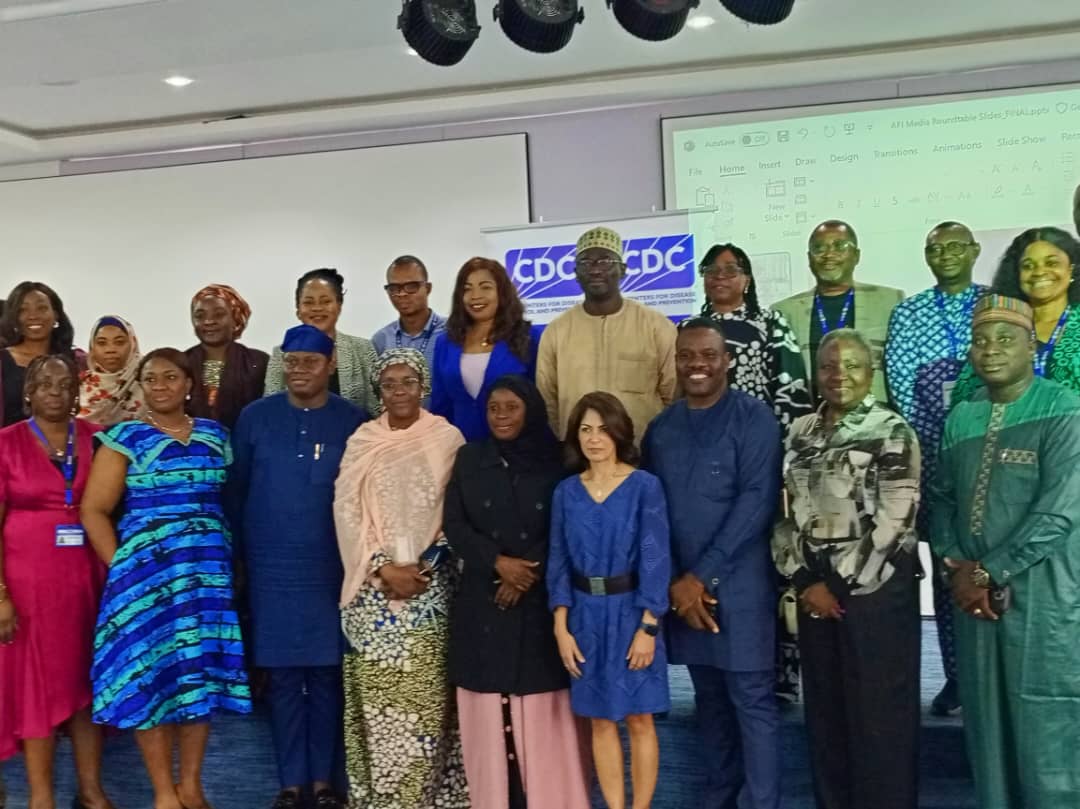The United States Centres for Disease Control and Prevention on Wednesday said limited laboratory diagnostic capacity for Acute Febrile Illness is leading to misdiagnosis or underdiagnosis of diseases, and inappropriate treatment and management of patients in Nigeria.
The US CDC made this known at a media roundtable in Abuja to highlight its support for AFI surveillance in the country, in collaboration with the Nigeria Centre for Disease Control and Prevention and other partners.
Experts say addressing gaps such as weak policies, limited testing facilities, and poor diagnostic capacity is essential to strengthen AFI surveillance in Nigeria.
Delivering his presentation, the Senior Public Health Specialist for Epidemiology and Surveillance at the US CDC Nigeria, Oladipupo Ipadeola, said AFI is an illness characterised by the rapid onset of fever, with or without other symptoms.
Ipadeola stated that AFI, which can be caused by bacteria, viruses, protozoa, and fungi, is more prevalent in children and young adults but can affect all age groups.
He noted that AFI presents with overlapping symptoms and that limited laboratory diagnostic capacity complicates its management.
He highlighted that AFI surveillance is crucial for early identification of infectious disease outbreaks, understanding their epidemiology, and implementing control measures.
“AFI surveillance refers to the systematic monitoring and investigation of cases of acute fever that occur suddenly and typically have a short duration. In Nigeria, limited laboratory diagnostic capacity for AFI is leading to misdiagnosis or underdiagnosis of diseases, and inappropriate treatment and management of patients.
“Addressing AFI surveillance gaps, such as a lack of clear policy, limited geographical spread of testing facilities, and poor diagnostic capacity, is essential. A good understanding of AFI cases in a country allows ministries of health and other public health institutions to strengthen surveillance and laboratory capacity,” he said.
He, however, added that the Federal Government has shown commitment and implemented several strategies and initiatives to address AFIs.
“Some of the key actions include surveillance and monitoring to improve early detection and response, public health education campaigns, malaria control programmes, vaccination initiatives, strengthening healthcare infrastructure, and collaborating with partners to enhance AFI activities,” he noted.
He explained that the U.S. CDC, in collaboration with the NCDC and other partners, has established sentinel surveillance sites across Nigeria’s six geopolitical zones, testing over 11,000 samples for priority diseases such as malaria, dengue, yellow fever, Lassa fever, and COVID-19.
The agency also enhanced laboratory capacity by upgrading equipment, introducing multiplex PCR testing, and training staff in selected laboratories.
He emphasised that AFI surveillance is a key component of the U.S. CDC’s work to advance global health security and noted that AFI surveillance is helping to identify disease patterns, co-infections, and strengthen diagnostic capacity in Nigeria.
He added that since August 2024, coordination of the programme has been handed over to the NCDC, while the US CDC continues to provide technical support, rapid diagnostic kits, and laboratory reagents to improve testing at sentinel sites.
In her opening remarks, the Programme Director at the Division of Global Health Protection, U.S. CDC Nigeria, Farah Husain, emphasised the importance of strengthening surveillance for AFI in Nigeria, as they are among the most common but often misunderstood health conditions.
She explained that a robust surveillance system will help identify the causes, burden, and spread of such diseases, enabling better and faster responses to outbreaks.
“Today’s engagement is a broader effort by the U.S. CDC in collaboration with the NCDC to establish a sustainable AFI surveillance system in Nigeria.
“The overall intent of this system is to help improve early detection, enhance laboratory capacity, strengthen data, and ultimately help us respond better and faster to outbreaks,” she stated.
The Director of Surveillance at the NCDC, Fatima Saleh, stressed the need to strengthen surveillance systems, improve response capacity, and scale up outreach efforts.
Saleh emphasised the need for strong advocacy across all levels of government to ensure evidence-based action, wider inclusion, and sustained support for protecting the health of Nigerians.
FOLLOW US ON:
FACEBOOK
TWITTER
PINTEREST
TIKTOK
YOUTUBE
LINKEDIN
TUMBLR
INSTAGRAM































